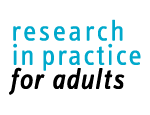This Outcomes Triangle aims to support outcomes-focused conversations, by encouraging a broader whole-person approach to what may be important to an individual and what strengths and assets are already in place. This triangle can be used before, during or on reflection of a conversation about outcomes. This may be useful in care planning to enable individuals to identify their own outcomes rather than just being assessed for services. Our environment, our support networks and our wellbeing are key in conversations about outcomes. Every individual will have an individual triangle unique to them, which can and will change over time. Clicking on each section on the triangle below brings up further information about that topic.
As with all tools or models on this site it is important to view these as prompts, not a checklist and not as a script, but as reminders to support practice.
Central to effectively supporting individuals to identify their outcomes is an awareness of our own skills. The middle section of the triangle has more details about what core skills and strategies practitioners may wish to explore and develop when having outcomes-focused conversations.
There is also more information in the outcomes-focused conversations section of the site.
Environment refers to the physical environment surrounding them. This might be their:
- Home
- Workplace if they have one
- Recreation facilities they access
- Local area and the community in which they live
Understanding the different environments people need to access and what they need or want to do in them ensures that you can focus on their strengths and the assets.
Further resources: What is a strengths-based approach (SCIE)
Support Networks encompasses informal support such as:
- Family
- Friends
- People or facilities in the local area or community
- Work colleagues
It also includes formal paid support which the person already accesses or may be able to access as domiciliary care, accessing day opportunities or education, employing a personal assistant etc.
Understanding people’s support networks ensures that you can focus on their strengths and the assets they can access.
Further resources: What is a strengths-based approach (SCIE)
Wellbeing is defined broadly in terms of the following principles:
- Personal dignity
- Physical and mental health and emotional wellbeing
- Protection from abuse and neglect
- Control by the individual over day to day life
- Participation in work, education, recreation etc.
- Social and economic wellbeing
- Domestic, family and personal relationships
- Suitability of living accommodation
- Contribution to society
Care Act 2014
Wellbeing and quality of life are really closely linked and it could be argued are the same thing. For example, the Adult Social Care Outcomes Toolkit (ASCOT) measures social care related quality of life across a number of domains which research has proven are those most important to people, generally: control, safety, food and drink, personal cleanliness, cleanliness of home, dignity, occupation and social contact; very closely mirror the wellbeing principles.
Core skills
It is important to consider some of the core skills that are essential for effective outcomes-focused conversations. Below are downloadable factsheets which include practice development question for personal reflection on individual skills.
- Non-verbal communication
- Keeping a conversational style
- Powerful questioning
- Active listening
- Asset and strengths-based conversations
- Universal questions: What? Where? Why?
- Analysis and critical thinking






